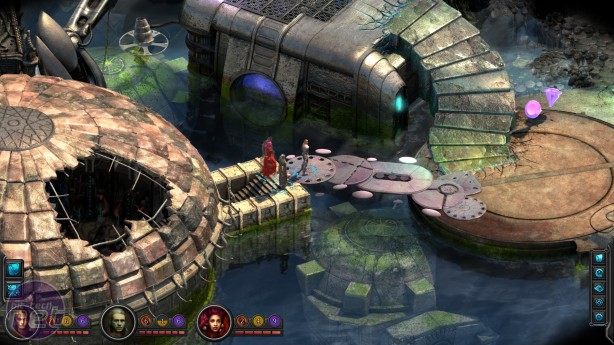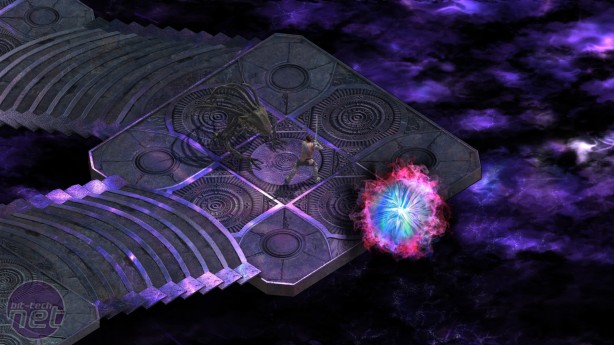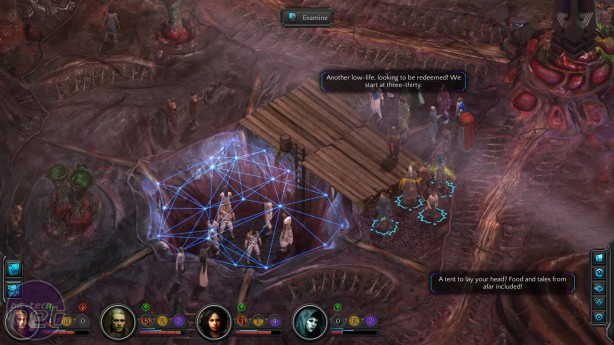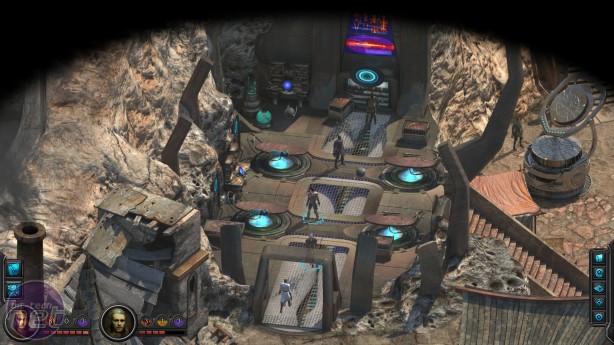
Torment: Tides of Numenera Review
Price: £29.99Developer: InXile Entertainment
Publisher: Techland
Platform(s): PC
I’ve been trying to pin down a scenario from Torment: Tides of Numenera that sufficiently captures its strangeness, but there are so many and they are so diverse that pointing to one simply doesn’t cut it. The only way to properly explain the game’s commitment to all things weird and wonderful is with some kind of scale. So, with one representing 'pretty darned weird' and ten standing for 'mind-meltingly insane', here are a few choice examples of Torment’s bizzaro world.
There is a bar that caters exclusively to psychics (2/10).
There are quests which take place entirely within your own mind (4/10).
You’ll encounter several characters who exist in multiple dimensions at the same time (7/10).
One of the hub-areas is a city in the guts of a giant, sentient being with thousands of mouths inside its own body. Each mouth hungers for something different and, when opened, can lead absolutely anywhere. (8/10).
The weirdness of Tides of Numenera is not in itself surprising. As the spiritual successor to Planescape Torment, weirdness is precisely what you’d expect. What is surprising is just how relentlessly Numenera confronts you with situations that force you to adjust your perspective on your surroundings. Almost every character, every object, every area you come across has something unearthly about it, a layer of inherent peculiarity that can be explored or exploited in multiple ways. Indeed, the way Numenera assaults you with new ideas and concepts is at times overwhelming. It’s like virtual Paris syndrome, only Japanese tourists who visit the French capital don’t need to worry about the city eating them.
Then again, in a way neither do you. The character you assume the role of in Tides of Numenera technically cannot die (3/10), because their consciousness inhabits the nearly indestructible form of a God who switches bodies every couple of decades (9/10). Each of these discarded bodies is known as a Castoff, and there are so many of them in Numenera’s world that they have become an acknowledged (though not always accepted) part of society. Yet with your casting off, the Changing God disappeared, and a terrible force known as the Sorrow began to haunt both your thoughts and your footsteps (1/10). It’s down to you to locate the Changing God and find a way of expunging the Sorrow from the world.
The connection between Numenera and the original Planescape is mainly thematic, this idea of inhabiting a strange body in an even stranger world. The connection with that landmark RPG means there is an onus on InXile to capture that same essence, and as you can probably tell from the examples I’ve given, the studio has certainly achieved that.
If you’re worried that InXile might have overdone it, however, fear not. All these outlandish notions are connected by a central idea. Numenera takes place a billion years in the future, and its society exists amid the remnants of multiple fallen civilisations. Objects from these extinct societies litter the world, many of which are only half-understood, and most of which aren’t understood at all. These objects are collectively known as Numenera, and are used by your comparatively primitive civilisation as anything from weapons to healing aids to power sources and even currency.
InXile has blended all this together into a hugely varied and vibrant RPG setting. As with Obsidian’s recent RPGs Tyranny and Pillars of Eternity, Numenera combines hand-painted backgrounds with 3D objects. Despite being built atop countless dead civilisations, Numenera’s world feels so much more alive. Scenes are brightly animated and take full advantage of modern visual effects. The opening area, a city named Sagus Cliffs, is a bustling commercial hub awash with colour and life. The library-cum-laboratory of the Order of Truth is illuminated by spinning, kaleidoscopic lights, while inside the city’s underbelly is a hissing mechanical forge where human workers toil under the watchful eyes of ancient robots who lost the ability to move centuries ago.

MSI MPG Velox 100R Chassis Review
October 14 2021 | 15:04













Want to comment? Please log in.